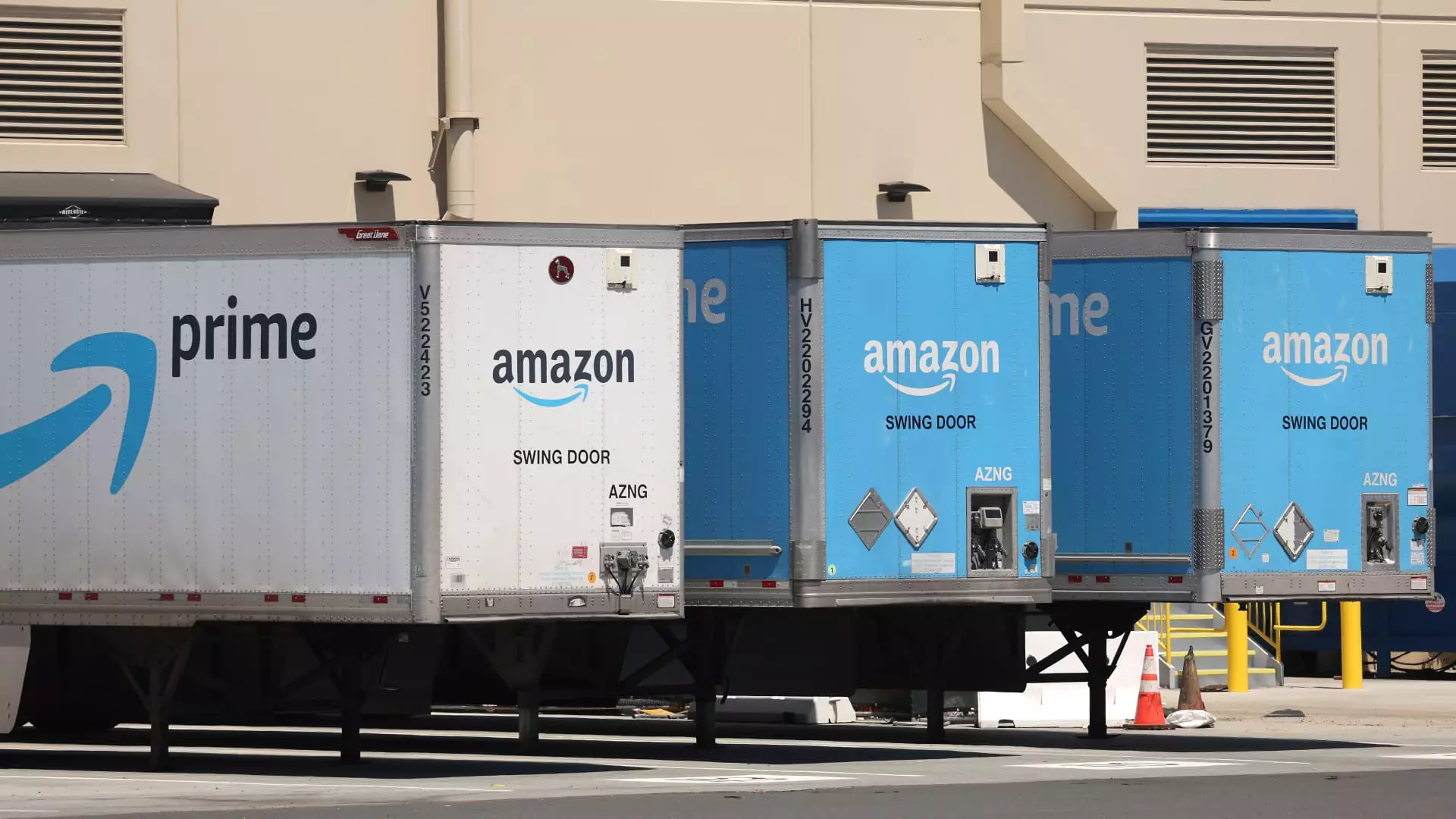The recent charges brought by the Department of Justice (DOJ) against members of an Armenian organized crime ring highlight a troubling escalation in cargo theft that undermines the integrity of e-commerce giants like Amazon. What’s particularly alarming is the sheer scale of the operation, which reportedly involved the theft of over $83 million worth of goods. From smart TVs to kitchen appliances, the criminals exploited their semblance as legitimate truck drivers to siphon off merchandise earmarked for delivery to Amazon warehouses. This not only reflects a colossal breach of security but also raises serious questions about the efficacy of current supply chain management practices within major retailers.
In an age where online shopping has become ubiquitous, incidents like these serve as a grotesque reminder of the vulnerabilities that accompany digital marketplaces. According to the DOJ, the problem is systemic, with Amazon itself plagued by recurring instances of cargo theft. This prompts a larger question: How can an industry built on trust and efficiency fall prey to such blatant criminality?
The Cost of Convenience
Experts estimate that the annual losses due to cargo theft in the United States could be as high as $1 billion. These staggering figures reflect an uncomfortable reality: as e-commerce expands, so does its susceptibility to crime. While retailers like Amazon ramp up their efforts to combat this issue—instituting stringent monitoring systems and suspending accounts allegedly linked to stolen goods—the problem remains daunting. Even as Amazon endeavors to eliminate stolen merchandise from its platform, the labyrinth of logistics makes it increasingly difficult to trace the origins of stolen goods, particularly when third-party sellers claim they are unwitting participants in these schemes.
This conundrum presents a paradox in the online retail space. On one hand, the model fosters immense convenience for consumers and businesses alike. On the other, it opens a Pandora’s box of vulnerabilities that criminals can exploit. The reality is that as retailers adapt to consumer demands for swift and seamless shopping experiences, they risk overlooking the very real threats posed by organized crime.
The Underbelly of E-Commerce: Criminal Networks
The alleged operations carried out by the crime ring, through multiple transportation carriers, reveal a sophisticated network that operates under the radar, camouflaged by the legitimate logistics industry. The manipulation of Amazon Relay, a platform designed to streamline freight routes for legitimate truckers, underscores a critical vulnerability that needs to be addressed.
It’s worth noting that this issue isn’t limited to high-profile criminals. Small businesses, often caught in the crossfire of legitimate supply chains, find themselves at risk of being labeled as complicit—even when they are victims themselves. The DOJ’s assertion that multiple defendants face serious criminal charges, including attempted murder and health-care fraud, illuminates a moral bankruptcy that extends beyond basic theft. This is not garden-variety crime; it’s a manifestation of a far-reaching malaise that infects various sectors.
Amazon’s Role in the E-Commerce Ecosystem
While it may be tempting to view Amazon simply as a victim in this scenario, the company’s actions reveal a more complex interplay between enterprise and ethics. Amazon’s aggressive strategies for combating cargo theft seem reactive rather than proactive. With a digital ecosystem as expansive as its own, one is left wondering why preventive measures weren’t prioritized earlier. After all, the sheer scale of its operations should ideally allow for adaptable security protocols, not just knee-jerk responses to criminal activity.
Moreover, by sidelining third-party sellers tangled up in these schemes, Amazon risks placing undue blame on smaller businesses, potentially jeopardizing their survival while defending its own reputation. Just as consumers increasingly demand transparency and ethical practices from they shop, so too should they expect the same from the platforms housing their purchases.
The unfolding tragedy of this organized crime network points to broader questions about the sustainability of e-commerce in an era characterized by rapid technological advancements. If action is not taken, we could be witnessing a systemic decline in not just security, but also trust in one of the most pivotal sectors of the economy.


Leave a Reply